Filter by
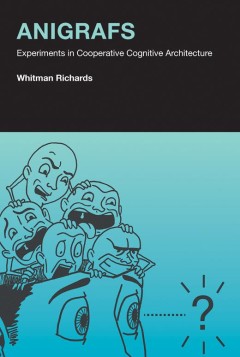
Anigrafs :experiments in cooperative cognitive architecture
"In this book, Whitman Richards offers a novel and provocative proposal for understanding decision making and human behavior. Building on Valentino Braitenberg's famous 'vehicles, ' Richards describes a collection of mental organisms that he calls 'daemons'--virtual correlates of neural modules. Daemons have favored choices and make decisions that control behaviors of the group to which they be…
- Edition
- -
- ISBN/ISSN
- 0262329115
- Collation
- 1 online resource (xiii, 148 pages) :illustrations
- Series Title
- -
- Call Number
- -
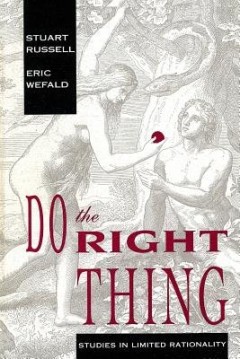
Do the Right Thing: Studies in Limited Rationality
The authors argue that a new theoretical foundation for artificial intelligence can be constructed in which rationality is a property of "programs" within a finite architecture, and their behavior over time in the task environment, rather than a property of individual decisions.Like Mooki, the hero of Spike Lee's film "Do the Right Thing," artificially intelligent systems have a hard time knowi…
- Edition
- -
- ISBN/ISSN
- 9780262282772
- Collation
- 1 online resource (xx, 200 pages) :illustrations.
- Series Title
- -
- Call Number
- -
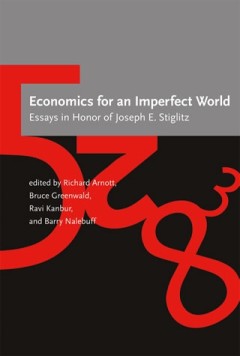
Economics for an imperfect world : Essays in honor of Joseph E. Stiglitz
Essays by leading economic thinkers reflecting the influence of 2001 Nobel Prize winner Joseph E. Stiglitz. Throughout Joseph Stiglitz's long and distinguished career in economics, the focus has been on the real world, with all of its imperfections. His 2001 Nobel Prize recognized his pioneering research in imperfect information; his work in other areas, including macroeconomics, public economi…
- Edition
- -
- ISBN/ISSN
- 9780262267342
- Collation
- 1 online resource (viii, 702 pages) :illustrations
- Series Title
- -
- Call Number
- -
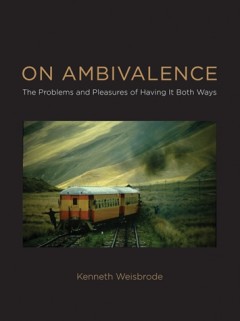
On ambivalence :the problems and pleasures of having it both ways
A concise guide to ambivalence, from Adam and Eve (to eat the apple or not?) to Hamlet (to be or not?) to globalization (e pluribus unum or not?).Why is it so hard to make up our minds? Adam and Eve set the template: Do we or don't we eat the apple? They chose, half-heartedly, and nothing was ever the same again. With this book, Kenneth Weisbrode offers a crisp, literate, and provocative introd…
- Edition
- -
- ISBN/ISSN
- 9780262301824
- Collation
- 1 online resource (81 pages)
- Series Title
- -
- Call Number
- -
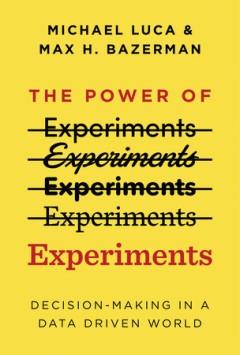
The power of experiments :decision making in a data-driven world
How organizations--including Google, StubHub, Airbnb, and Facebook--learn from experiments in a data-driven world.OCLC-licensed vendor bibliographic record.
- Edition
- -
- ISBN/ISSN
- 9780262358255
- Collation
- 1 online resource (xiv, 211 pages)
- Series Title
- -
- Call Number
- -
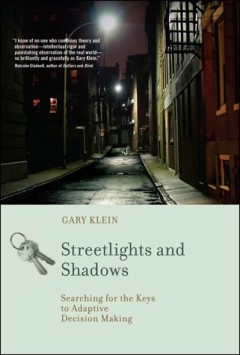
Streetlights and shadows :searching for the keys to adaptive decision making
In making decisions, when should we go with our gut and when should we try to analyze every option? When should we use our intuition and when should we rely on logic and statistics? Most of us would probably agree that for important decisions, we should follow certain guidelines—gather as much information as possible, compare the options, pin down the goals before getting started. But in prac…
- Edition
- -
- ISBN/ISSN
- 9780262259019
- Collation
- 1 online resource (xi, 337 pages) :illustrations, maps
- Series Title
- -
- Call Number
- -
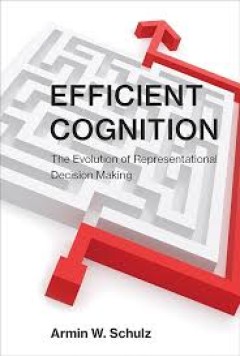
Efficient cognition :the evolution of representational decision making
An argument that representational decision making is more cognitively efficient, allowing an organism to adjust more easily to changes in the environment.OCLC-licensed vendor bibliographic record.
- Edition
- -
- ISBN/ISSN
- 9780262345262
- Collation
- 1 online resource
- Series Title
- -
- Call Number
- -
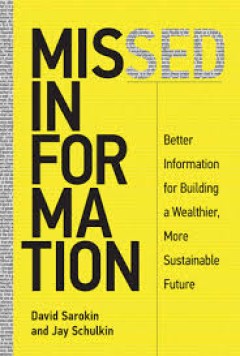
Missed information better information for building a wealthier more sustainab…
How better information and better access to it improves the quality of our decisions and makes for a more vibrant participatory society.OCLC-licensed vendor bibliographic record.
- Edition
- -
- ISBN/ISSN
- 9780262336253
- Collation
- 1 online resource
- Series Title
- -
- Call Number
- -
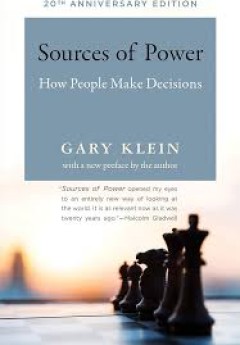
Sources of power :how people make decisions
Revised edition of the author's Sources of power, c1998.A modern classic about how people really make decisions: drawing on prior experience, using a combination of intuition and analysis.OCLC-licensed vendor bibliographic record.
- Edition
- Twentieth Anniversary edition.
- ISBN/ISSN
- 9780262343244
- Collation
- 1 online resource
- Series Title
- -
- Call Number
- -

Decisionscape :the art of getting perspective
"This book unpacks the organizing metaphor of the "decisionscape," examining how psychological distance alters our decisions by dictating what we foreground and what we diminish, how our personal worldview influences how we interpret information, how the overall "composition" of the decisions we are faced with has an effect on how we react to them, and how our decisions are bounded and framed b…
- Edition
- -
- ISBN/ISSN
- 9780262378246
- Collation
- 1 online resource
- Series Title
- -
- Call Number
- -
 Computer Science, Information & General Works
Computer Science, Information & General Works  Philosophy & Psychology
Philosophy & Psychology  Religion
Religion  Social Sciences
Social Sciences  Language
Language  Pure Science
Pure Science  Applied Sciences
Applied Sciences  Art & Recreation
Art & Recreation  Literature
Literature  History & Geography
History & Geography